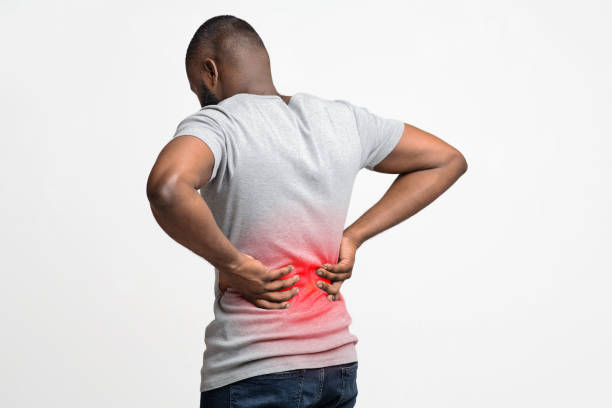- Empty cart.
- Continue Shopping
How to Manage Chronic Pain in Men

Chronic pain is a complex and often debilitating condition that affects millions of people worldwide, including men. It can stem from various causes, such as injury, illness, or underlying medical conditions. Managing chronic pain in men requires a comprehensive approach that considers both physical and emotional well-being.
Understanding Chronic Pain
Chronic pain is defined as persistent pain that lasts for weeks, months, or even years. It can manifest in various forms, including musculoskeletal pain, neuropathic pain, and visceral pain. Chronic pain not only affects physical health but also takes a toll on mental and emotional well-being.
Common Causes of Chronic Pain in Men
- Musculoskeletal Injuries: These include conditions like back pain, joint pain, and arthritis.
- Neuropathic Conditions: Conditions such as diabetic neuropathy or sciatica can result in chronic nerve pain.
- Chronic Illnesses: Diseases like fibromyalgia, irritable bowel syndrome (IBS), or Crohn’s disease can cause persistent pain.
- Post-Surgical Pain: Some men experience chronic pain following surgery.
Developing a Pain Management Plan
Managing chronic pain often requires a multifaceted approach tailored to the individual’s needs and the underlying cause of the pain. Here are some steps to help men effectively manage chronic pain:
1. Consult with a Healthcare Provider
The first and most crucial step is to consult with a healthcare provider, such as a pain specialist or primary care physician. They can help diagnose the underlying cause of the pain and develop a personalized treatment plan.
2. Medications
Medications may be a part of the pain management plan. Depending on the type and severity of pain, your healthcare provider may prescribe pain relievers, anti-inflammatory drugs, or medications specifically designed for neuropathic pain.
3. Physical Therapy
Physical therapy can be immensely beneficial for chronic pain management. A physical therapist can design a customized exercise program to improve strength, flexibility, and mobility, which can alleviate pain and reduce the risk of further injuries.
4. Mind-Body Techniques
Mind-body techniques such as meditation, deep breathing exercises, and progressive muscle relaxation can help manage chronic pain by reducing stress and improving coping skills.
5. Alternative Therapies
Some men find relief through alternative therapies like acupuncture, chiropractic care, or massage therapy. These therapies can complement traditional treatments.
6. Lifestyle Modifications
Making positive lifestyle changes can have a significant impact on chronic pain management. This includes maintaining a healthy weight, adopting an anti-inflammatory diet, and avoiding smoking and excessive alcohol consumption.
7. Manage Stress and Anxiety
Chronic pain can lead to increased stress and anxiety, which, in turn, can exacerbate pain. Learning stress management techniques and seeking support from a mental health professional can be crucial.
8. Support Groups
Participating in support groups for individuals with chronic pain can provide a sense of community and valuable coping strategies. Sharing experiences with others who understand can be comforting and empowering.
The Role of Mental Health
The connection between chronic pain and mental health is significant. Men, in particular, may be less likely to seek help for emotional distress related to pain. Addressing the emotional aspect of chronic pain is essential for comprehensive management.
1. Depression and Anxiety
Chronic pain can lead to feelings of depression and anxiety. These emotional states can intensify pain perception and reduce the effectiveness of pain management strategies. It’s essential to seek treatment for mood disorders if they coexist with chronic pain.
2. Cognitive Behavioral Therapy (CBT)
CBT is an evidence-based therapy that can help individuals reframe negative thought patterns related to pain. It teaches practical coping strategies and can be effective in improving overall pain management.
Avoiding Opioid Dependence
In the past, opioids were commonly prescribed for chronic pain management. However, due to their potential for dependence and misuse, healthcare providers are now cautious about opioid prescriptions. Men with chronic pain should explore alternative pain management methods before considering opioids, and if prescribed, should use them under strict medical supervision.
Staying Active and Engaged
Chronic pain should not lead to social isolation or inactivity. Men should strive to stay engaged in activities they enjoy, even if it means modifying them to accommodate their pain. Staying active can help maintain physical function and mental well-being.
Finally, Chronic pain in men is a challenging condition that can significantly impact physical, emotional, and social aspects of life. Effective management requires a comprehensive approach that addresses both the physical pain and the emotional toll it takes. By working closely with healthcare providers, exploring a range of treatment options, and prioritizing mental health, men with chronic pain can improve their quality of life and regain a sense of control over their well-being. Remember that pain management is a journey, and with the right support and strategies, it is possible to lead a fulfilling and active life despite chronic pain.








